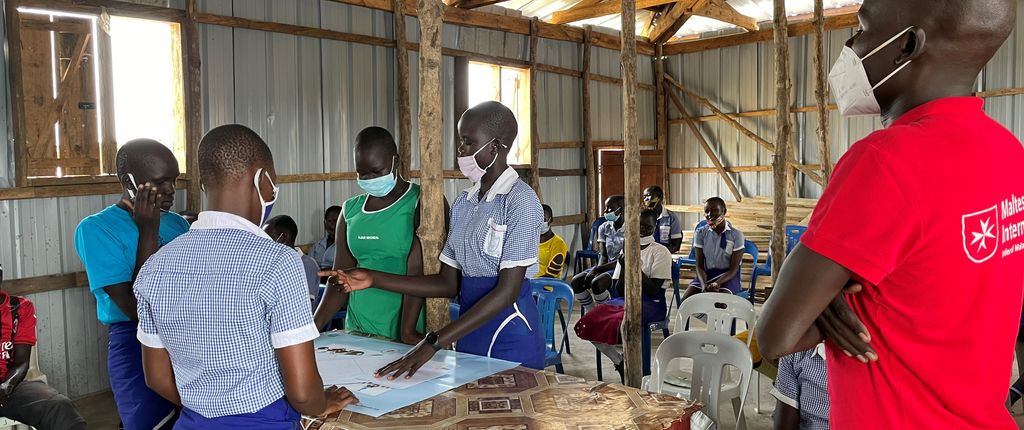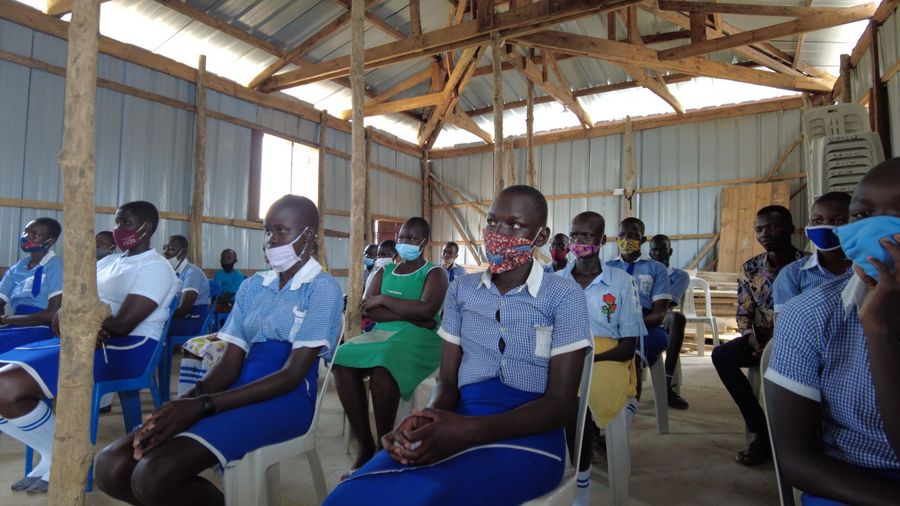Malteser International – the Order of Malta’s worldwide relief agency – has launched a project in 23 schools in South Sudan to raise awareness among schoolgirls on how to protect themselves from Covid-19 infections. The project involves biweekly sessions with training and games for students and teaching staff. In one of the games face-down cards lie on the table, a poster with painted pictures underneath, and five students stand around the table and look for the matching pairs to the pictures on the poster. It is a bit reminiscent of a child’s game of memory. “You always have a card that shows how you should act and a card that shows what you shouldn’t do. You have to uncover these matching pairs and then compare them with the pictures on the poster,” Wani Robert Lou, hygiene trainer at Malteser International explains to the children.
The game is not only intended to bring some variety into their lessons, but above all to show them how they can become infected with the coronavirus.
” The pictures make it clear to them how they should behave. Keeping distance, wearing a mask, they see all that again in the pictures and through the repetitions they remember it. It’s a good idea to sensitize the children,” says Joseph Ayella, the school’s headteacher.
After the long lockdown, many girls did not return to school
The numbers of infections with the coronavirus in South Sudan are not particularly high. According to official figures, 12,804 people had contracted the virus by December 2021, and 133 had died from it. However, the number of unreported cases is likely to be much higher, because not much testing is done in the country.
The corona pandemic has primarily had economic consequences. Since the beginning of the pandemic, there have been repeated lockdowns and freedom of travel has been restricted; stores and markets were closed for months in 2020. The currency was devalued, and many people today no longer know how to feed their families.
Schools closed for an entire year, and this was not without consequences either, says 14-year-old Jennifer Louis: “Many girls from our school did not come back after the lockdowns,” she reports. “They got married and got pregnant. No one knew when the schools would reopen. The girls felt that if the schools were closed, they would have no choice but to get married”.











